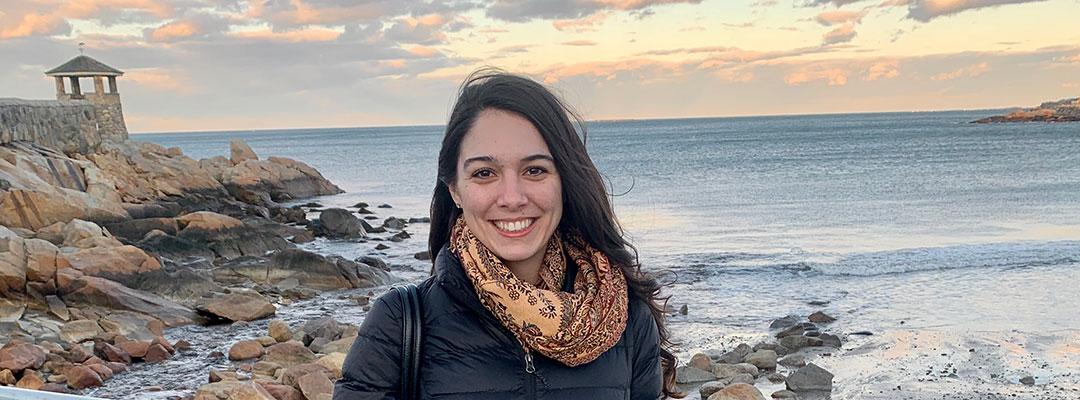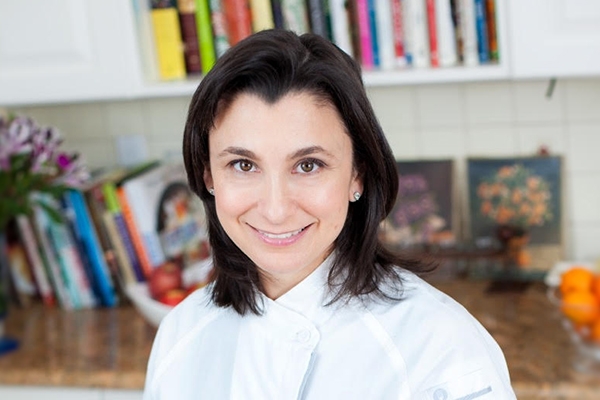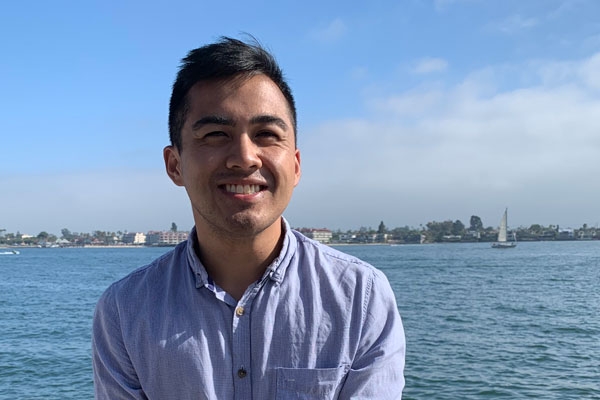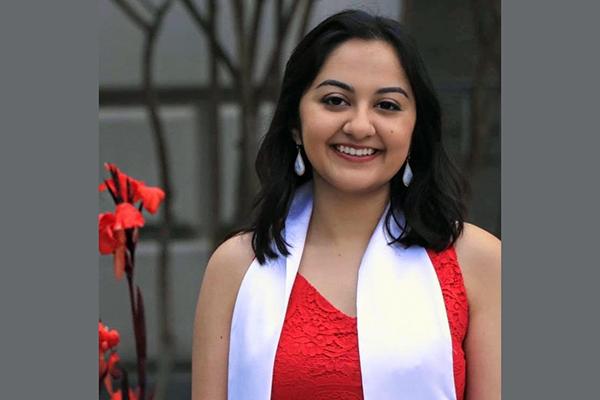“When I moved to Washington, D.C., for college, I had considered pursuing a degree in psychology or a related field but never felt sure enough of the decision to pursue it as a major,” admits Post-Baccalaureate Program for Counseling and Psychology Professions graduate Lisell Perez-Rogers.
Instead, Lisell completed her undergraduate degree in justice, law and criminology cum laude from American University. While interning on Capitol Hill for a congresswoman from her home district in New York, it became apparent to Lisell that she was meant to be involved in social change. “My sophomore year, I took my first law class—and I loved it immediately,” she says.
“But although I loved my justice, law and criminology major,” she continues, “there was still a part of me that was curious about the field of psychology. As I worked through the requirements of my major, I realized that the fields of law and psychology intersected at many different points. I took as many courses as I could that addressed both.”
After she graduated from American University in 2015, Lisell worked full time as a nanny before accepting a position as a research and training coordinator at the American Academy of Child and Adolescent Psychiatry (AACAP). She was drawn to that organization because of its work in advocating for and supporting children’s mental health.
After three years in that position and then as the organization’s grants and research program manager, Lisell realized that she wanted to work with children and adolescents directly—and her first thought was to pursue a graduate degree in counseling or psychology.
Concerned about the effect of not having an undergraduate degree in psychology would be on her master’s application, Lisell decided to enroll in a post-baccalaureate program to show her commitment to the field.
Three Reasons Why
She turned to our Post-Baccalaureate Program for Counseling and Psychology Professions for three reasons:
-
“I missed being a student and taking classes. While I knew I was going to pursue a graduate program eventually, I was eager to get back into studying and learning.”
-
“I hadn’t studied psychology in undergrad, and I was worried that that would place me at a disadvantage when applying to graduate programs and when starting a graduate degree. Completing a post-bacc would not only convey my commitment to the field, but also provide me with the foundational knowledge to be successful in a program once I was accepted.”
-
“I really wanted to confirm for myself that I was truly interested in learning the material in detail and wasn’t just fascinated by the idea of working in the field.”
Rather than taking individual courses in psychology, she chose to register for the program because of its structure and organization.
“I liked the idea of working toward a certificate because I felt that it conveyed intentionality and commitment,” she explains. “I had done some research into the best individual courses to take to prepare for graduate school but struggled to narrow down exactly which courses to take, as many sources provided different suggestions. Completing a post-bacc program in psychology seemed like the most appropriate way to obtain the comprehensive foundation I was looking for.”
Our Program Comes With Additional Benefits
Because she was working full time at AACAP, nannying part time, training for a half marathon and applying to graduate programs—all while completing our post-bacc program—Lisell appreciated the affordability and flexibility of the online classes. Yet, it wasn’t just the flexible course structure but also the program’s staff and instructors’ understanding of her personal situation that made a difference.
“While I was completing the program, I eventually stopped to reflect on my many commitments and responsibilities and admitted to myself that I had taken on more than I could handle,” Lisell recalls. “I was worried about completing all of the requirements for my final course in the post-bacc on time and didn’t think there was anything I could do except retake the course the next time it was offered. I ended up reaching out to the program staff and my instructor and they supported me in applying for an extension. I am grateful to them for being so understanding and flexible and allowing me the extra time I needed to complete the course to the best of my ability.”
“[The program] is well organized and provides the perfect amount of structure and flexibility for individuals who are also working full time or have other commitments.”
Having completed the program, Lisell firmly believes that this success shows her initiative, commitment and drive to succeed in graduate school.
“The post-bacc counseling and psychology classes provided me not only with the foundational knowledge I needed to succeed in my graduate-level classes, but also helped ease me back into student life,” she affirms.
“Readjusting to life as a full-time student after working full time was a challenging lifestyle change. Completing the post-bacc prior to graduate school made the transition easier, and the post-bacc program itself positively impacted my acceptance into graduate programs.”
Graduate School and Beyond
Lisell recently completed the two-year master’s degree program in mental health counseling at Boston College.
“I chose to attend Boston College because of the graduate program’s unique emphasis on social justice,” she says. “The intersection of mental health and public policy is of critical importance to ensuring that those who need mental health services have access to its resources, regardless of their socioeconomic status.”
Lisell understands the need for accessibility to resources and plans to pay it forward with her career focus. “I was drawn to the field of counseling because it is ever-expanding and will offer a lifetime of continuous education and challenges. Each individual seeking mental health treatment is going to bring a unique experience and need for individualized care.
“I chose to pursue a career in the field because it is an opportunity to help others—particularly children, adolescents and young adults—develop a greater understanding of themselves and provide them with opportunities for change. Additionally, I hope to be able to influence critical social policy that impacts access to care.”
Lisell wants to do that back in Washington, D.C., where her desire to change public policy will have the greatest effect.
“In five to 10 years from now, I hope to be a licensed counselor living in Washington, D.C.,” she states. “While I still have some interest in working with children and adolescents, I hope to be working in a college counseling center providing services to undergraduate and graduate students. I also hope to become involved in mental health policy work, either at the institutional-, state- or federal level.”



